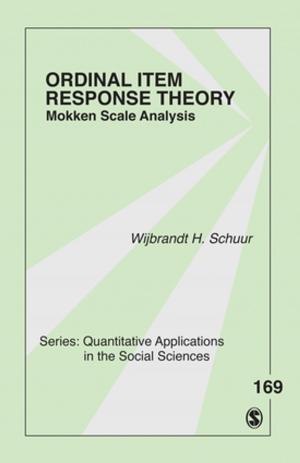The Politics of Poverty
Planning India's Development
Business & Finance, Economics, Economic Development| Author: | D K Rangnekar | ISBN: | 9788132117056 |
| Publisher: | SAGE Publications | Publication: | October 9, 2012 |
| Imprint: | Sage Publications Pvt. Ltd | Language: | English |
| Author: | D K Rangnekar |
| ISBN: | 9788132117056 |
| Publisher: | SAGE Publications |
| Publication: | October 9, 2012 |
| Imprint: | Sage Publications Pvt. Ltd |
| Language: | English |
Dr D. K. Rangnekar was a leading public intellectual who marked his presence as the editor of the Economic Times and later the Business Standard. This collection brings together a discerning selection of his writings that are organized across four themes: social and political dimensions of development; international context to India’s experiment; planning and budgets; and industrial and economic policy. The writings begin in the early 1960s and end in 1984—at the cusp of radical transformation of India’s economic policies and political fabric—thus providing an important handbook of the times.
The collection includes reflections on PL480 and the accompanying devaluation; the 1970s call for a New International Economic Order and the problems of development in an unequal world; and G77 solidarity and the Uruguay Round of negotiations of GATT. Drawing on Dr Rangnekar’s expertise in planning, budgets, and black money, the collection includes his commentaries on the transition from Nehruism and planned development to the difficult foundations of India’s contemporary economic performance.
The selection is accompanied by essays from T.N. Ninan, Pratap Bhanu Mehta and Sanjaya Baru.
Dr D. K. Rangnekar was a leading public intellectual who marked his presence as the editor of the Economic Times and later the Business Standard. This collection brings together a discerning selection of his writings that are organized across four themes: social and political dimensions of development; international context to India’s experiment; planning and budgets; and industrial and economic policy. The writings begin in the early 1960s and end in 1984—at the cusp of radical transformation of India’s economic policies and political fabric—thus providing an important handbook of the times.
The collection includes reflections on PL480 and the accompanying devaluation; the 1970s call for a New International Economic Order and the problems of development in an unequal world; and G77 solidarity and the Uruguay Round of negotiations of GATT. Drawing on Dr Rangnekar’s expertise in planning, budgets, and black money, the collection includes his commentaries on the transition from Nehruism and planned development to the difficult foundations of India’s contemporary economic performance.
The selection is accompanied by essays from T.N. Ninan, Pratap Bhanu Mehta and Sanjaya Baru.















